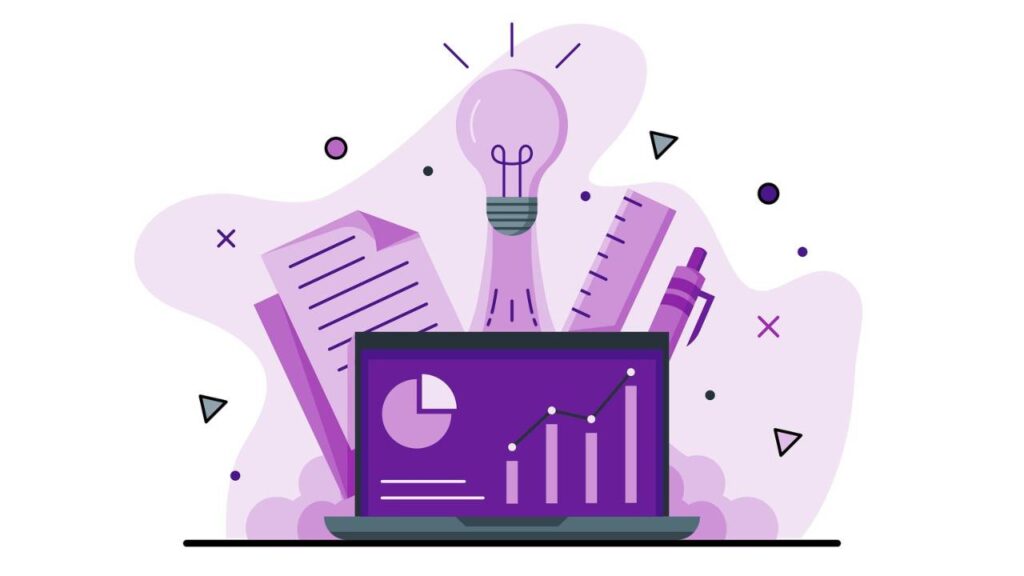
Technical companies in high-risk industries face distinct challenges that generic marketing agencies often overlook. In sectors like electrical engineering, industrial safety, and technical services, building trust goes far beyond merely selling expertise – it’s about establishing true authority where operational continuity, compliance, and even lives can depend on reliable partnerships. Traditional marketing simply doesn’t suffice when the cost of a business losing money or selecting the wrong vendor could lead to safety incidents, regulatory breaches, or serious operational failures, making specialised digital marketing strategies essential for fostering credibility and trust within these critical fields.
Understanding the Unique Challenges of High-Risk Industry Marketing

Marketing in high-risk sectors such as technical, safety-critical industries differs fundamentally from promoting consumer products. While selling to consumers often involves direct appeals and swift decisions, technical services demand far more rigorous evaluation from potential clients.
Potential customers in these sectors conduct detailed due diligence. This process typically involves several stakeholders, including technical experts, procurement professionals, and senior executives, each with specific concerns and criteria. Decision-making cycles can extend for months as organisations scrutinise a provider’s credentials, compliance, and record – a reality that makes understanding how to navigate long sales cycles essential for marketing professionals targeting these industries.
Companies must navigate stringent regulatory standards and heightened scrutiny. Any service that impacts safety, compliance, or operational integrity will face greater scepticism. Trust must be established through documented proofs, certifications, and references rather than solely through marketing messages.
Communicating complex technical information presents another challenge. Audiences may range from engineers familiar with technical language to decision-makers focused on risk management or cost efficiency. Effective marketing must convey depth while remaining accessible to all involved parties.
Traditional marketing metrics such as click-through rates or impressions often hold little value in these environments. The sales journey is rarely linear and is shaped by extensive vendor qualification processes, pilot projects, and careful benchmarking rather than impulsive responses to online campaigns.
The Role of Expertise and Credentials in Digital Trust Building
Technical companies operating in high-risk sectors must provide clear evidence of their expertise and credentials throughout their digital presence. Clients expect more than basic testimonials—they look for visible proof of technical competence, including relevant certifications, compliance documentation, and verifiable qualifications.
Demonstrating membership in respected professional associations or listing regulatory compliance status on websites directly addresses client concerns about competence and safety. As a result, building a safety-first culture becomes a key differentiator for companies marketing to safety-conscious organisations, as potential clients want to work with vendors who prioritise safety as fundamentally as they do.
Content should focus on deep technical knowledge. Surface-level marketing messages do not satisfy audiences that require concrete assurances. Detailed project portfolios, case studies, and technical white papers showcase specific expertise and provide insights into how companies solve complex problems within strict regulatory frameworks.
Highlighting completed projects and providing transparent information about compliance records helps technical companies gain digital credibility. These trust signals reassure clients that the company holds the required industry qualifications and can deliver to rigorous standards.
Companies must keep these credentials and case materials up to date. Stale or outdated information may raise doubts among prospective clients researching technical partners in high-risk industries online.
Content Marketing Strategies for Technical Authority

High-risk industries demand certainty, knowledge, and attention to compliance. Irish technical companies can demonstrate expertise through detailed technical guides, compliance checklists, and industry-specific safety protocols. These resources assure stakeholders of the company’s understanding of nuanced challenges.
Educational content, such as explainers or regulatory updates, helps demystify complex requirements without direct selling. This type of content is seen as unbiased and objective, which helps to foster trust among engineers, regulators, and procurement specialists.
Substation safety, for example, is a topic reliant on strict adherence to technical standards and ever-changing regulations. Content focusing on equipment handling, legislative changes, and industry best practices signals a deep understanding of the field. By providing insights into how to navigate these areas, companies show that their knowledge goes beyond basic product or service offerings.
By addressing real-world scenarios—such as compliance with the latest EU directives or quick adaptation to recent safety protocols—companies take on the role of a trusted authority. Thought leadership content like industry analysis, commentary, and perspectives on future trends establishes the company as a valued source of guidance and advice.
Technical information can be repurposed into more accessible formats. Firms can transform thorough technical documents into short videos for operators, clear guides for buyers, or summary checklists for safety managers. Tailoring each piece to different stakeholder levels ensures messages are both digestible and impactful.
Website Design and User Experience for Technical Trust
Technical buyers in high-risk sectors often approach vendor selection with caution, taking time to scrutinise every detail. Website design must facilitate this extended evaluation process by offering comprehensive, clearly structured information across all service pages.
Accessible documentation of certifications, standards compliance, and relevant credentials is essential. Clients expect to verify these details easily, and any barriers can undermine trust. Intuitive navigation helps users quickly find technical datasheets, regulatory information, and case studies without unnecessary searching.
Site security, professional aesthetics, and robust technical performance are critical trust markers. Secure domains, up-to-date privacy policies, and clearly visible security badges signal a commitment to protecting user data. Slow loading times or broken links may lead prospects to question a company’s attention to detail.
Clear contact information, including physical addresses, and direct lines to technical staff or account managers, reassures clients of transparency. Team profiles featuring qualifications and sector-specific expertise further reinforce authority and confidence in the company’s capabilities.
Transparent pricing models or explanations of project processes provide clarity and reduce uncertainty. This transparency reflects both integrity and competence – qualities that help avoid the perception that a company may undervalue its customers or overlook the importance of long-term relationships.
Given the prevalence of mobile device usage, mobile optimisation and fast site speed also influence perceptions of technical proficiency. A seamless experience, regardless of device, demonstrates the company’s ability to deliver at the highest technical standard.
Measuring Success and ROI in High-Risk Industry Marketing

Success metrics in high-risk technical industries extend beyond basic digital marketing indicators. Instead of focusing solely on web traffic or simple lead counts, Irish technical companies benefit from monitoring the quality of leads and the number of conversions from technical decision-makers.
For businesses with lengthy sales cycles, tracking the progression of prospects through each stage is crucial. Engagement with detailed technical content, downloads of compliance documents, and increased interaction from qualified prospects often provide a more meaningful measure of marketing effectiveness.
Long-term client retention remains a key indicator of trust and authority in high-risk sectors. Companies should prioritise client lifetime value and track referral rates, recognizing that rapidly collecting new leads may not reflect the true impact of trustworthy reputation-building efforts.
Measuring industry recognition can involve monitoring invitations to speak at events, citations in trade publications, and participation in recognised thought leadership forums. Increased requests for in-depth resources and technical consultations further support the evaluation of brand authority and credibility over time.
Conclusion
Success in marketing within high-risk industries hinges on a fundamentally different set of priorities compared to general consumer or B2B sectors. For Irish technical companies, digital marketing is not simply a promotional tool, but an integral extension of their professional reputation. By prioritising trust, expertise, and meticulous communication over flashy campaigns or aggressive sales tactics, these organisations deliver the credibility that sophisticated, technical buyers require. Companies embracing digital marketing strategies tailored to their specialised field consistently establish deeper authority, gaining a decisive advantage when buyers select partners for mission-critical projects.

